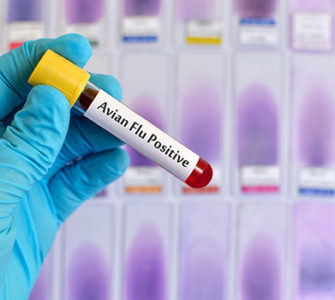Tyson vet: Act quickly on unexplained poultry mortality
Quick action by breeder managers and veterinarians is credited with the rapid resolution of an avian influenza (AI) outbreak in Tennessee in March of 2017.
Only 3 days passed from the time the first breeder-hen mortalities were noticed to the completion of farm depopulation, reported Steve McCarter, DVM, MAM, ACPV, senior veterinarian at Tyson Foods, during the 2017 National Meeting on Poultry Health and Processing.
Any unexplained bird mortality needs to be investigated thoroughly, he said, because clinical signs of AI can vary, and the disease may not appear obvious. Furthermore, sampling of dead birds is critical to ensure a proper diagnosis.
The AI situation in Tennessee started when 180 breeder hens died unexpectedly in less than 24 hours. Even though the managers didn’t see any signs of respiratory disease or any other clear cause of mortality, they immediately notified the State Veterinarian of Tennessee, McCarter said.
Testing of tracheal and blood samples confirmed the hens most likely had highly pathogenic H5/H7 AI. The federal government was notified, and depopulation efforts commenced 2 days after the first mortalities were observed, he said.
Prior preparation for depopulation is critical and Tyson was prepared, thanks to practice sessions with regional AI teams, McCarter continued.
During the crisis, Tyson teams came to the affected farm from multiple locations, along with foaming machines and a depopulation trailer. There was also invaluable help from the federal government, which provided extra manpower, he said. It would have been difficult for Tyson personnel alone to accomplish depopulation quickly and still provide routine care to unaffected Tyson flocks, he said.
Posted on May 1, 2018

















